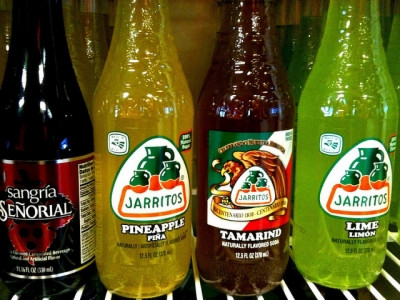Mexico, With World's Top Obesity Rate, Raises Prices On Soft Drinks To Fight It

It is a well-known fact that the U.S is the country in the world with the largest obesity rate. But it isn't anymore. A report by the United Nations revealed that the U.S. came in second to its southern neighbor, Mexico. The new data, published in July, shows that 32.8 percent of Mexicans are overweight -- a full percentage point over the number of Americans.
President Enrique Peña Nieto, whose administration has been going through an intense few months of political reforms, has begun taking measures to fight the trend. The first, taking a page from New York Mayor Mike Bloomberg, has attacked sugary drinks, which have been blamed for the burgeoning rate of overweight citizens.
Peña Nieto has announced an increase in the price of soft drinks. A liter of soda, which currently costs 12 pesos (90 cents of a dollar), could be charged an extra peso if the government-sponsored financial reform package is approved by Congress next month.
Mexico is the largest consumer of soft drinks, according to the U.N.’s World Health Organization -- the average Mexican drinks 163 liters (46 gallons) per year of soda, 40 percent more than the average American (118 liters, or 31 gallons). Coca-Cola (NYSE:KO) has an even higher estimate: According to the multinational, Mexicans consume an average of 650 cans a year, which adds up to a little over 200 liters (52 gallons).
Two hundred liters a year means an increase of 200 pesos yearly in daily grocery shopping for next year, should the reform be approved. And that increase means the measure could actually hurt a section of society, as opposed to helping improve the health of most Mexicans.
“In absolute terms, the new tax will affect those families that buy the most soda. In relative terms, it will affect those who dedicate a bigger chunk of their budget to sugary drinks -- that means, the poorest families,” said Ciro Murayama, economy professor at Universidad Autónoma de México, in an interview with Spanish newspaper El País.
This observation has additional implications. In many areas of Mexico, it is easier to buy a can of soda than to find a bottle of water. Any small village in the country will have a local store selling sugary drinks, but won't always have access to running, potable water.
“In rural regions of Mexico, social programs that motivate the consumption of fresh produce do not work, because it is hard to find vegetables and fruits. On the other hand, any processed product available in any Mexican city is available in the country too,” pointed out a report by NGO Oxfam.
“It is already part of daily life in Mexico. You enter any home at lunch time, and there will be a big bottle of soda on the table,” continued the report.
Murayama goes further, saying that even if the tax is applied to soda, that will not stop people from buying the drinks. “It is not such a big increase, and I doubt it will have such an impact on the economy at all,” argued the professor.
Soft drink producers made it known that they worry about a decrease in consumption. The Mexican Asociación Nacional de Productores de Refrescos (Soft Drink National Producers Association) estimated a drop in sales of 15 percent, which could mean a loss of between 135,000 and 700,000 jobs.
If the tax is approved, it would mean an estimated income of 20 million pesos a year ($1.5 million), which, several congress members said, could be used to begin building a potable water network reaching the whole country.
© Copyright IBTimes 2024. All rights reserved.





















